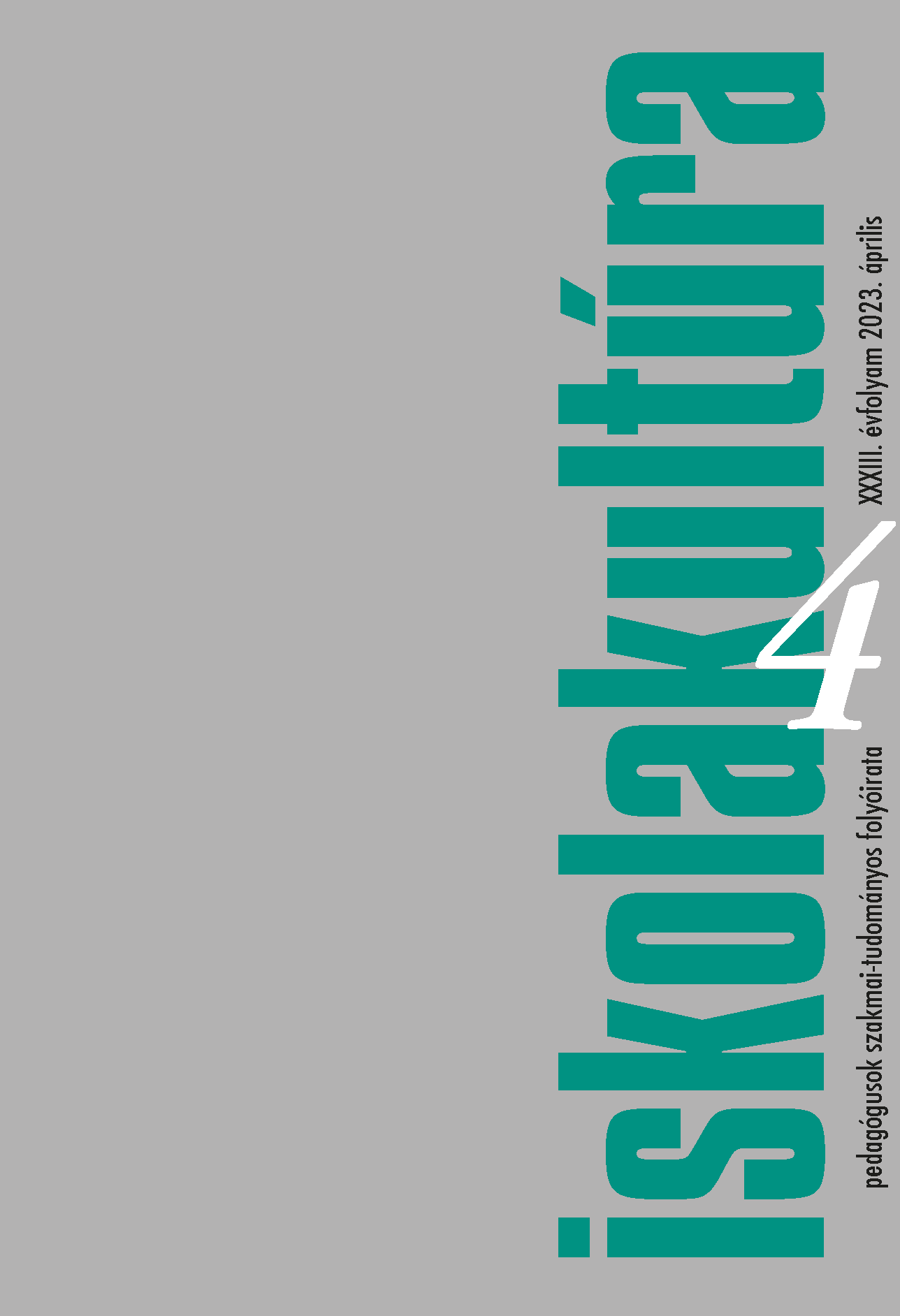Cross-aged peer learning in primary science lessons a comparison of tutees’ and tutors’ opinions
Main Article Content
Abstract
The study investigated the experience of a cross-aged peer-tutoring program with a fourth-grade class (N=31) and the sixth-grade students who tutored them (N=12). During the program, older students conduct and discuss scientific experiments with younger students. The activities are aimed at increasing students’ interest in science, improving their knowledge, and developing their social and communication skills. In addition, students are introduced to a form of tutor-led learning, where the learning process is guided by pre-trained tutors. The program lasted six months, spread evenly over the environmental education lessons. The experiments were led by 6 tutors in 6 permanent pairs, with the fourth graders conducting 3 experiments at a time in groups of 4-5. Our questionnaire survey used open and closed questions to assess students’ impressions of the program. Both fourth and sixth graders liked the program, but fourth graders liked it significantly more. Fourth graders identified learning and knowledge acquisition as the goal of the program, while sixth graders identified learning and knowledge of nature as the goal. Both age groups mentioned learning and knowledge acquisition as the benefits of the program. Responses to the closed questions also confirm that both tutee and tutor students felt that the program had a didactic rather than a social impact. Fourth graders felt that they had improved in experimentation and social learning, while sixth graders also improved in experimentation and scientific knowledge. Vocal disturbances and behavioural problems were negative aspects in both age groups. Our results suggest that the program works and provides a good starting point for testing its effectiveness in further schools through pre- and post-testing.
Downloads
Article Details
References
AlShareef, S. M., Aldayel, A. Y., Alghamdi, H. M., Alosaimi, M. B., Alharbi, M. M., Aldayel, A. A. & Alhussain, H. A. (2019). Perceptions on reciprocal peer teaching among medical students as learners and as tutors. Advances in Medical Education and Practice, 10, 817–827. 10.2147/AMEP.S220728
Alegre, F., Moliner, L., Maroto, A. & Lorenzo-Valentin, G. (2019). Peer tutoring in algebra: A study in middle school. The journal of educational research, 112(6), 693–699. 10.1080/00220671.2019.1693947
Alegre, F., Moliner, L., Maroto, A. & Lorenzo-Valentin, G. (2020). Academic Achievement and Peer Tutoring in Mathematics: A Comparison Between Primary and Secondary Education. SAGE Open, 10(2). 10.1177/2158244020929295
Alwi, S. K. K., Samson, A. & Shahzadi, S. (2019). Role of peer tutoring and methods to boost reading skills at the urban sector primary schools. New Horizons (1992–4399), 13(1), 197–210. 10.2.9270/NH.13.1(19).11
Bánfi, G. (2022). A diáktárssal támogatott tanulás formái, alkalmazásának előnyei. Iskolakultúra, 32(1), 87–100.
Brannagan, K. B., Dellinger, A., Thomas, J., Mitchell, D., Lewis-Trabeaux, S. & Dupre, S. (2013). Impact of peer teaching on nursing students: Perceptions of learning environment, self-efficacy, and knowledge. Nurse Education Today, 33(11), 1440–1447. 10.1016/j.nedt.2012.11.018
Cofer, R. (2020). The Peer Tutor Experience: Tutor Perceptions of Academic Performance and Skillset Gains. The Learning Assistance Review, 25(1), 41–64.
Fűz, N. (2018). Az iskolán kívüli tanulás gyakorlatának, megítélésének és hatásának vizsgálata általános iskolás tanulók, pedagógusok és intézményvezetők körében. Nem publikált PhD-értekezés. SZTE Neveléstudományi Doktori Iskola.
Halim, N., Arif, M. M. & Supramaniam, K. (2020). Enhancing reading comprehension through metacognitive reading strategies and Peer Tutoring among Year 7 Students at a Home School Centre. Asian Journal of University Education, 16(1), 22. 10.24191/ajue.v16i1.8981
Khalid, H., Shahid, S., Punjabi, N. & Sahdev, N. (2018). An integrated 2-year clinical skills peer tutoring scheme in a UK-based medical school: perceptions of tutees and peer tutors. Advances in Medical Education and Practice, 8(9), 423–432. 10.2147/AMEP.S159502
Kissné, G. Á. (2021). Hétköznapi tudomány: egy tanévet átfogó természettudományos programsorozat. In Korom, E. & Veres, G. (szerk.), Gondolkodtató természettudomány-tanítás. Komplex természettudomány. Mozaik Kiadó.176–197.
Nahalka, I. (2013). Konstruktivizmus és nevelés. Neveléstudomány: oktatás – kutatás – innováció. 1(4), 21–33.
Orion, N. & Hofstein, A. (1991). The measurement of students’ attitudes towards scientific field trips. Science Education, 75(5), 513–523.
Orion, N. & Hofstein, A. (1994). Factors that influence learning during a scientific field trip in a natural environment. Journal of Research in Science Teaching, 31(10), 1097–1119.
Petancio, J. A. M., Perez, N. B. & Javier, N. G. N. (2020). Peer Tutoring: Its Effects on Subject Mastery and Mathematics Anxiety among Elementary Education Teaching Interns. Malaysian Journal of Education (0126–6020), 45(2), 47–56. http://dx.doi.org/10.17576/JPEN-2020-45.02-05
Serap, U. Y. & Elif, A. (2016). The effects of peer tutoring on university students’ success, speaking skills and speech self-efficacy in the effective and good speech course. Educational Research and Reviews, 11(11), 1035–1042. 10.5897/ERR2016.2718
Thurston, A., Roseth, C., Chiang, T. H., Burns, V. & Topping, K. J. (2020). The influence of social relationships on outcomes in mathematics when using peer tutoring in elementary school. International Journal of Educational Research Open, 1, 100004. 10.1016/j.ijedro.2020.100004
Topping, K. J., Campbell, J., Douglas, W. & Smith, A. (2003). Cross-age peer tutoring in mathematics with seven- and 11-year-olds: Influence on mathematical vocabulary, strategic dialogue and self-concept. Educational Research, 45(3), 287–308. 10.1080/0013188032000137274
Topping, K. J. (2005). Trends in peer learning. Educational Psychology, 25(6), 631–645. 10.1080/01443410500345172

